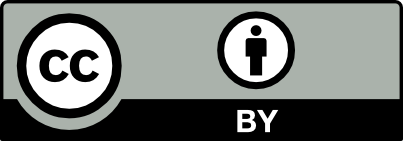Ethical aspects of inventory management in an agricultural enterprise
DOI:
https://doi.org/10.14232/analecta.2023.4.40-45Keywords:
agricultural inventory management, ethics, procurement, salesAbstract
Inventory management has a different meaning in agriculture than in a commercial chain, but it is just as important. In most cases, the purpose of the inventory is to satisfy demand. Demand and supply do not always meet at a predetermined place and time but are shaped by external circumstances. It is the same in agriculture. Our research aims to present and compare simple inventory management methods through a practical agricultural example and to examine the ethical aspects. To manage inventory, we have to make an appropriate decision in the following two questions: when to order and how much to order. There are three basic inventory mechanisms: cycle inventory, damping inventory, and two-warehouse inventory. There are three levels within business ethics: macro-, meso-, and micro-level. In the case of the examined agricultural limited company, the meso- and micro-levels are affected by ethical problems. When handling inventory improperly, can the employee be held liable, or is the company responsible? The agricultural sector began to develop, which is mainly the result of developments in the use of information technology. Even so, many farms still use outdated methods, which should be changed to operate more economically
Downloads
References
S. Illés, International elderly migration in Hungary, Migracijske i Etničke Teme, 22 (1-2) (2006), pp. 53-77.
S. Illés, Polgármesteri szemmel a turizmusról és a migrációról / Tourism and migration from a mayor's perspective, Comitatus, 17 (10) (2007), pp. 50-66.
A. Chikán, E. Fábi, M. Nagy, Készletek a gazdaságban / Inventories in the economy, Közgazdasági és Jogi könyvkiadó, Budapest, 1978
A. Chikán, Készletgazdálkodás / Inventory management, Tankönyvkiadó, Budapest, 1971
Z. Némon, Raktározási ismeretek / Storage knowledge, Kereskedelmi és Idegenforgalmi Továbbképző Kft., Budapest, 2013
Magyar Vállalkozásfejlesztési Alapítvány, Készletgazdálkodás / Inventory management, Magyar Vállalkozásfejlesztési Alapítvány, Budapest, 1995
Gyné Elek, Á. Kovács, J. Stahl, Termelésrogramozás és készletgazdálkodás / Production scheduling and inventory management, Közgazdasági és Jogi könyvkiadó, Budapest, 1982
J. Veress, Készletgazdálkodás módszerek és modellek / Methods and models of inventory management, Tankönyvkiadó, Budapest, 1974
M. Botos, Gazdaságetika és a gazdasági gondolkodás története / History of business ethics and business thinking, Pázmány Péter Katolikus Egyetem Jog- és Államtudományi Kar, Budapest, 2000
J. Gál, H. I. Gálné, Ethic Question of Business Activities, The Annals of the Faculty of Economics in Subotica, 22 (2009), pp. 71-76.
L. Hársing, Bevezetés az etikába / Introduction into ethics, Nemzeti Tankönyvkiadó, Budapest, 1995
J. Gál, A logisztika alapjai / The basics of logistics, IM Informatikai Magániskola Kft., Hódmezővásárhely, 2008
Z. Fabulya, Excel VBA függvények kialakítása háromdimenziós vektorok matematikai alkalmazására / Creating Excel VBA Functions for the Mathematical Application of Three-dimensional Vectors, Journal of Current Social and Economic Processes, 14 (1) (2019), pp. 29-34.
Z. Fabulya, Developing a VBA program to generate documents containing exercises, Quaestus multidisciplinary research journal, 19 (June 2021), pp. 284-289.
Downloads
Published
How to Cite
Issue
Section
License
Copyright (C) 2023 Authors
This work is licensed under a Creative Commons Attribution 4.0 International License.













